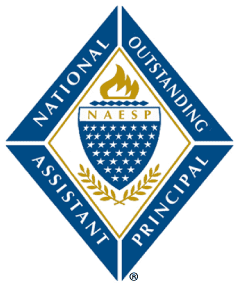
Heather A. Williams
Warren Dupree Elementary School
Jacksonville, Arkansas
hwilliams@jnpsd.org
Best Practices
1) At Warren Dupree Elementary, our mission is to work hard to discover new learning opportunities that will help us to excel and soar. This mission is integrated into our classroom instruction as well as student learning. Instructional leadership is a best practice our administrative team has implemented to ensure our focus is on support for continuous improvement of teaching expertise. My principal and I have tiered our teachers to determine the levels of support that our teachers need in both classroom management and instruction. Based upon our daily observations of classroom interactions, we provide actionable, specific, and timely feedback to improve our teachers’ pedagogy. I have worked strategically with teachers using Diane Sweeney’s student-centered coaching cycles. As I support and coach teachers, we analyze assessment data collaboratively, determine appropriate instructional strategies to differentiate according to student needs and implement co-teaching supports to increase student performance. These practices are in addition to our collaborative team meetings through our Professional Learning Communities. I work in the classrooms who need the most support by coaching, co-teaching, and supporting the teacher through analyzing data and determining appropriate next steps to increase student learning. By far, this is one of the best practices of an administrator. One of our teachers mentioned to me, “I’ve had you in my classroom more this year than in the last five years here at Dupree.” My principal and I know our school’s data. We know our teachers’ strengths and areas of growth. We are in the classrooms every day supporting our teachers’ professional growth. Our focus is results-oriented as we develop our teachers’ capacity to show overall improvement in student learning.
2) Positive Behavioral Interventions and Supports (PBIS) is a framework that we have implemented at Warren Dupree Elementary as a campus-wide initiative and support system to encourage, promote and educate our teachers and students in positive behavioral practices. We began by developing goals, based on data, in our strategic plan aligned with discipline and culture to increase self-efficacy of students and positive behavioral interventions and support by teachers and staff. This began by implementing social contracts in our classrooms to promote positive interactions in behaviors among students to develop a positive classroom climate and culture. Schoolwide matrices were implemented to ensure consistent expectations and procedures across all common areas of the school. Grade-level teams developed classroom matrices to ensure consistency across a grade level. This consistency has been crucial to the success we have experienced in our discipline rates as well as to the increase in our positive culture and climate of the building. We implemented a PBIS committee whose sole purpose was to monitor goals on our strategic plan as well as our progress towards goals in the area of student discipline. The PBIS committee also encourages, trains and implements positive supports for students to earn based on positive behavioral actions. The PBIS committee works closely with our Response to Intervention committee to determine appropriate interventions for students needing more behavioral support. This tiered approach for both tier one behavioral supports and, furthermore, tier two and three interventions provides accountability and responsibility for students and teachers. This also supports our belief in distributed leadership among our staff to ensure collective commitment in decision-making and implementation of initiatives. The combination of these systematic processes ensures differentiated behavioral success for all students whilst training teachers and staff on positive reinforcement strategies to motivate scholars towards that behavioral success. This has been one of the best practices we have implemented to ensure our staff and students are supported in regard to behavior management while also ensuring that the evidence-based practices we implement align with our strategic plan, data and overall school goals.


